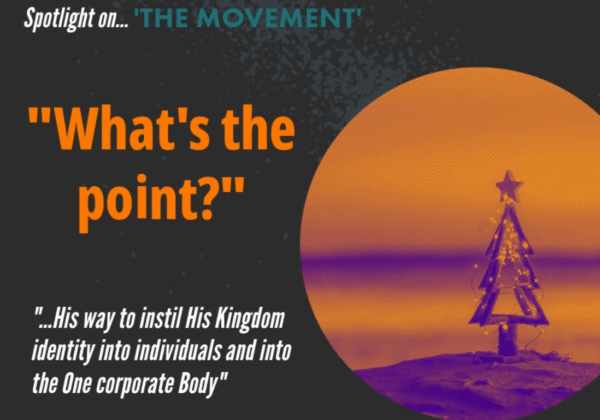
Feasts & Festivals – What’s the Point?
Together Narrative
As 2023 draws to a close and the New Year almost upon us, I reflect on the past 12 months and focus on certain highlights that will remain with me for many years.
One of these, for a whole variety of reasons, is undoubtedly the Together 23 Festival at Himley on July 8.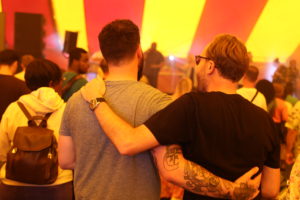
When it comes to the festivals we have done so far in this decade of 2020-30 – a period that has special prophetic significance for me – there are two reoccurring questions from the broad body of the Black Country church I’m often asked. The first: ‘Why would you go to all that trouble and spend so much money on one day, just a one-off event?’ And, secondly: ‘What is the main reason for doing a festival anyway, what’s the point?’
Let me take few minutes to try to reply. You’ll be pleased to know that I am going to try to answer both questions in one go, as in attempting to respond to the latter, my hope is that the answer to the former will become evident too.
Let me take you back to the 1990s when I was doing the youth-work at The Church @ Junction 10 in Walsall. If you were to ask many of the young people from back then for a few of the memories they can recall, I think that one of the responses would be learning about The Feasts of Jehovah!
We tried to be cool and we definitely mixed it up, honestly, but we really did do a few in-depth Bible studies on Friday nights too, and those who managed to stay awake for most of them would hopefully still be able to list off the seven feasts.
I doubt, however, that many would recount the order, or the Jewish words for each.
So, I hear you ask, what are the feasts all about, and what has that got to do with the Together 23 Festival?
Well, feasts and festivals are one and the same. Both somehow encapsulate God’s heart for His people to remember, to look back, and to be corporately identified with Him as their God once more.
Using Love Black Country-speak, a festival was therefore a very significant way to gather, to celebrate and to imagine.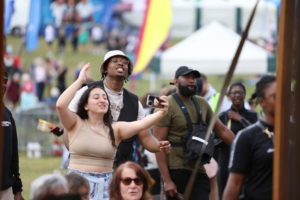
The feasts/festivals of Jehovah were given to His chosen people to enable them to ‘feel part of Him’. For want of a better expression, to be identified with Jehovah, and to know that they belonged to a family, a community, a nation . . . a nation defined ultimately in and by Him. This helped them to overcome the spirit of independence which can so often exist deep inside of us all, inside our individual communities and even nations.
Some would argue that that this sense of identify is what saved and preserved the Jewish nation when they were for so long exiled from their homeland.
And so we can see that the festivals somehow imbibed into the Jewish/Hebrew people a strong and distinct identity that would set them apart, strengthen their corporate resolve and provide a framework and a rhythm for an individual and a community to be supernaturally knit TOGETHER, to become ONE.
Each time a festival took place, each person, their whole community and nation were once again invited in to re-imagine their own history in order to re-connect with their shared destiny, God Himself; Our Father. Our God, not mine!
The last of the festivals, or, the end goal of the Feasts is ‘Tabernacles’, or Jehovah Shammah ( The Lord is there), the Creator and created just hanging out together.
How wonderful it would be if this was said of our churches and the Black Country followers of Jesus during, or even at the end of this decade.
Does any of this language sound familiar?
Together 23 took place this year to help us to gather, celebrate and imagine. It was put on to give our God the opportunity to do what only He can in terms of building His Church, using the language of 1 Corinthians 12, He arranges the parts, combines the members and distributes the gifts.
He speaks and we respond. In Leviticus 23, He told His people to come together in what He called a ‘sacred assembly’, and said that it would help the next generation remember what He had previously done: A together gathering, set apart by Him and His directive.
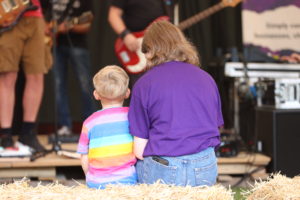 So we gathered individuals from across many churches, charities, organisations and businesses (families and clans) and from across the four boroughs and surrounding areas (tribes) as we will again, and again. In doing so, we hoped that the larger gathering would be some kind of inspired visual message to our young people.
So we gathered individuals from across many churches, charities, organisations and businesses (families and clans) and from across the four boroughs and surrounding areas (tribes) as we will again, and again. In doing so, we hoped that the larger gathering would be some kind of inspired visual message to our young people.
We were able to celebrate our diversity and differences, our own unique stories from so many differing backgrounds and denominations, and we were hopefully inspired to imagine what God could possibly do with our TOGETHERNESS as we head deeper into this ‘decade for mission’ as I believe God called it. Maybe a ‘kairos moment’, for such a time as this.
Thus, we look to a future identified more by what He can do with the Oneness He is building in His Body than what we could ever achieve in or by our individual selves.
Our dream is that through all of this, God will find His way to instil His Kingdom identity into both individuals and into the One corporate Body He is seeking to reveal Himself through to the region around us.
One thing that I think is in many ways hidden in the narrative behind the feasts is the desire of God to just BE with his people, just like He did with Adan & Eve in the garden. The Hebrew word used for ‘feast/festival ’is MOAD (MO-ed) which means “appointed time”, the plural being MOADIM (MO-eh-deem).
Leviticus 23 opens with the words, “These are MY feasts”, or these are my appointed times. These are my dates, in other words. I do recall telling our team back in 2020 that I felt like God wanted to have a date with His Bride!
That may sound disrespectful to some I’m sure, but at the end of the day, the Gospel is a love story, and the King of Romance can surely be allowed to express His desire to BE with His People, His Body, His Bride, just as He did with Israel through the Festival of Tabernacles?
To be honest, I think it is a beautiful way to describe why we do the festival and the thought that we want to gather you all together again to present you before The Lord as His Bride gives me goosebumps still. I love it!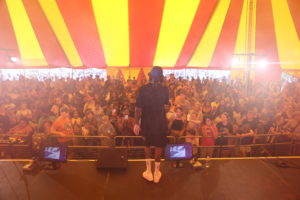
I also remember telling people that we needed to roll out a huge red carpet as The Bridegroom wanted to come to Himley Park to meet with His Wife-to-be, and we should spare no expense.
Again, I am sure there will be people who think we should not spend a fortune on such frivolities, but I am encouraged by Jesus’ response to those who rebuked the woman who washed His feet with her hair, using extremely expensive oils that could have been ‘much better spent’ in some peoples’ eyes. I should note, we’re grateful for this supply of ‘perfume’ given by our partner churches, generous individuals and the support of organisations eager to meet the Black Country Church. The festivals were financially cost neutral and profited not only as a fantastic red carpet for the Lord but profited connections for creatives, charities, churches and families that will pay dividends for years to come.
If I had more time and space here, I would love to write about the ‘decade for mission’, how He is looking for new vehicles (or donkeys) to reveal Himself through, and why He has such a huge heart to reach a new generation largely untouched by the Church. More on that in 2024, maybe.
Finally, I would also love to unfold more about the Festivals of Jehovah, but I have been asked to keep this to a limit. [A limit you’ve exceeded Tim! – from the Email Editor] so maybe have a look on The Book of Google and search for yourself (and the link below is one such place I found very helpful as a refresher).
https://www.jewishvoice.org/read/article/9-questions-and-answers-about-biblical-feasts
So, as 2023 draws to a close, on behalf of the various teams that make up the Love Black Country Collective Team, may I wish you all a fabulous Christmas and a wonderful New Year!
Related posts
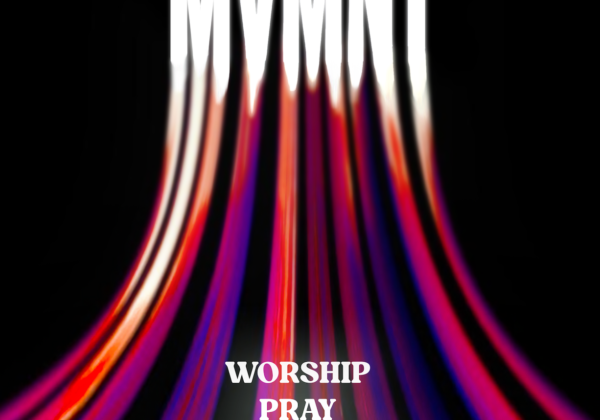 MOVEMENT – Youth Prayer for the Black Country - We’re back! After successfully gathering nearly 200 young people for the Youth Prayer Gathering the last two gatherings, we’re keen to come together again. This is MOVEMENT, named by young people at Together Festival – a moment to worship, pray and gather the young people of our region. Facilitated by Love Black Country and The […]
MOVEMENT – Youth Prayer for the Black Country - We’re back! After successfully gathering nearly 200 young people for the Youth Prayer Gathering the last two gatherings, we’re keen to come together again. This is MOVEMENT, named by young people at Together Festival – a moment to worship, pray and gather the young people of our region. Facilitated by Love Black Country and The […] Feasts & Festivals – What’s the Point? - Together Narrative As 2023 draws to a close and the New Year almost upon us, I reflect on the past 12 months and focus on certain highlights that will remain with me for many years. One of these, for a whole variety of reasons, is undoubtedly the Together 23 Festival at Himley on July 8. […]
Feasts & Festivals – What’s the Point? - Together Narrative As 2023 draws to a close and the New Year almost upon us, I reflect on the past 12 months and focus on certain highlights that will remain with me for many years. One of these, for a whole variety of reasons, is undoubtedly the Together 23 Festival at Himley on July 8. […]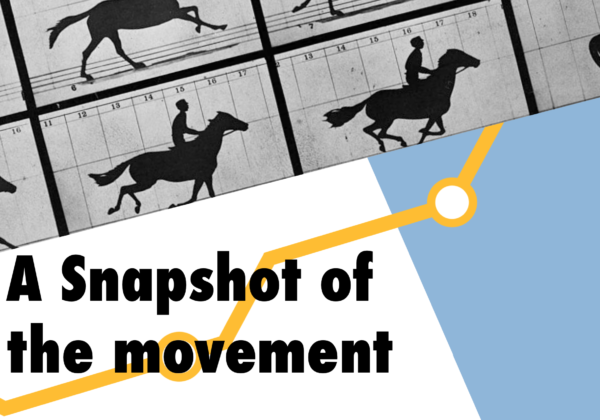 Snapshot – A review of a year of movement. - Snapshot 2023 – Love Black Country As we share this annual snapshot, we want to take a moment to express our gratitude to you all. Love Black Country has been part of this regional Church community for over 30 years, and it’s humbling to see the progress we’ve made together. This movement isn’t just about […]
Snapshot – A review of a year of movement. - Snapshot 2023 – Love Black Country As we share this annual snapshot, we want to take a moment to express our gratitude to you all. Love Black Country has been part of this regional Church community for over 30 years, and it’s humbling to see the progress we’ve made together. This movement isn’t just about […]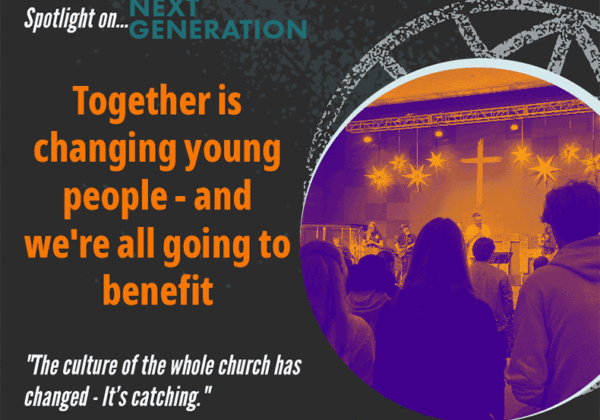 MOVEMENT – How a regional youth gathering changed a church - Last week 200 young people gathered TOGETHER from across the Black Country to worship & pray together, this regional evening was a roaring success with young people pouring themselves out for Jesus and coming forward for prayer. The sense of the spirit was tangible. We’re sure that investing in young people will feed, grow and […]
MOVEMENT – How a regional youth gathering changed a church - Last week 200 young people gathered TOGETHER from across the Black Country to worship & pray together, this regional evening was a roaring success with young people pouring themselves out for Jesus and coming forward for prayer. The sense of the spirit was tangible. We’re sure that investing in young people will feed, grow and […]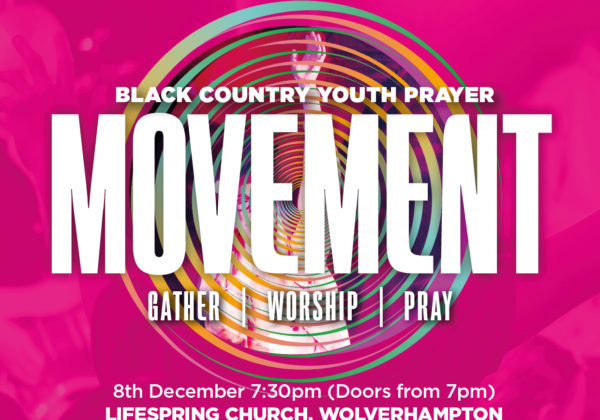 MOVEMENT – Youth Prayer for the Black Country - We’re back! After successfully gathering nearly 200 young people for the Youth Prayer Gathering in April, we’re keen to come together again. This time with a new name, as selected by young people at Together Festival MOVEMENT This is MOVEMENT, named by young people at Together Festival – a moment to worship, pray and gather […]
MOVEMENT – Youth Prayer for the Black Country - We’re back! After successfully gathering nearly 200 young people for the Youth Prayer Gathering in April, we’re keen to come together again. This time with a new name, as selected by young people at Together Festival MOVEMENT This is MOVEMENT, named by young people at Together Festival – a moment to worship, pray and gather […]